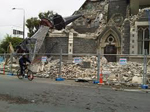More Stories

Monday, November 03rd 2025
Market recovery signals consistent with interest rate falls
The early stages of a property recovery could have appeared in the past two months, Kelvin Davidson, Cotality chief property economist says.

Thursday, October 30th 2025
Another swipe at property investors
Labour’s capital gains tax of 28% on residential and commercial property won’t deter investors who invest for cashflow, Nick Gentle, iFind Property founder and buyer’s agent says.

Monday, October 20th 2025
Capital gains tax almost irrelevant – English
Former Finance Minster Bill English says the days of guaranteed capital gains in the housing market are over,
Thursday, October 09th 2025
New rules for meth contaminated houses
REINZ welcomes regulation of methamphetamine contamination in rental housing.

 Search
Search
